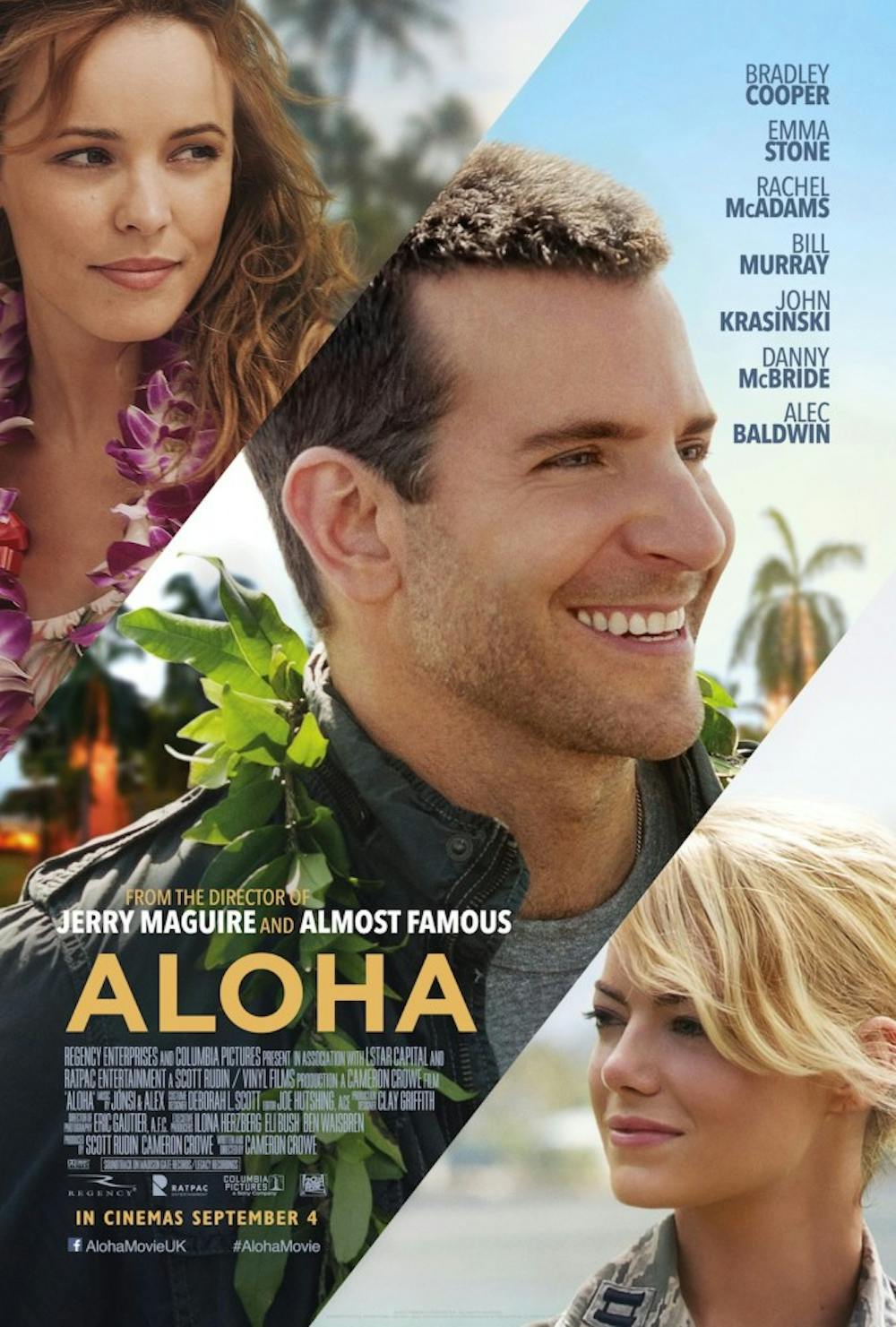A love story can be incorporated into just about any topic. Ideally, the romance would encompass and advance the entire narrative, such as the love between a poor artist and a wealthy aristocrat which fosters a broader message against classism in “Titanic.” Framing a love story within unique or trying circumstances is convenient from a writing standpoint and for making historic or tragic events more comprehensible.
Last weekend’s “Aloha” deviates from this tried-and-true formula. While its attempt at unconventionality is admirable, the film’s presentation of two love stories among numerous clumsy political statements feels sincere but overly ambitious, awkward in its best moments and fairly incoherent in its worst.
“Aloha” cannot decide what story it wants to tell. It follows Brian Gilcrest (Bradley Cooper), a military contractor with commitment issues, as he returns to an Air Force base in Hawaii to oversee a “gate blessing” — a plot device which is never fully explained and is unclear to viewers unfamiliar with Hawaiian tradition. In fact, many moments in the film would greatly benefit from some added clarity.
In addition to the gate blessing, Gilcrest is negotiating a partnership with nefarious billionaire Carson Welch (Bill Murray) on a vague mission to take over space. Meanwhile, Gilcrest is torn between an old flame, who is now married with children, and a new love interest in the form of a young female Air Force Captain (Emma Stone) with whom he is expected to maintain a professional relationship.
The plot and various subplots are extremely muddled — the cinematography is literally dizzying in at least one instance, as the camera melodramatically spins around two characters to signify an emotionally complex reunion. Despite a few sloppy attempts at exposition, various conflict resolutions meant to be heartfelt are confusing and unsatisfactory.
Perhaps some clarifying moments were left on the editing-room floor, but the big-budget cast seems to have done the best they could. Bradley Cooper’s performance is respectable in spite of his inconsistently written character. John Krasinski manages to overcome his seemingly inherent charm enough to portray Rachel McAdams’ emotionally distant spouse. Alec Baldwin contributed an excellent Alec Baldwin impression.
However, the film has deservedly received flack for casting Emma Stone as part-Native Hawaiian, part-Chinese Captain Anna Ng. While Stone is undeniably likable in the role, her portrayal of the loquacious, idealistic young military officer takes an unfortunate turn from charismatic to airheaded. It appears this regressive depiction of women in the military was unintentional, but “Aloha” certainly intended to make a number of political statements.
Between an unwarranted, bizarre denouncement of commercial space exploration and a completely warranted but undeveloped criticism of U.S. treatment of indigenous peoples, the simple concept of paying homage to the beauty and history of Hawaii is entirely lost. Casting a single Native Hawaiian in a central role may have been a good place to start.







